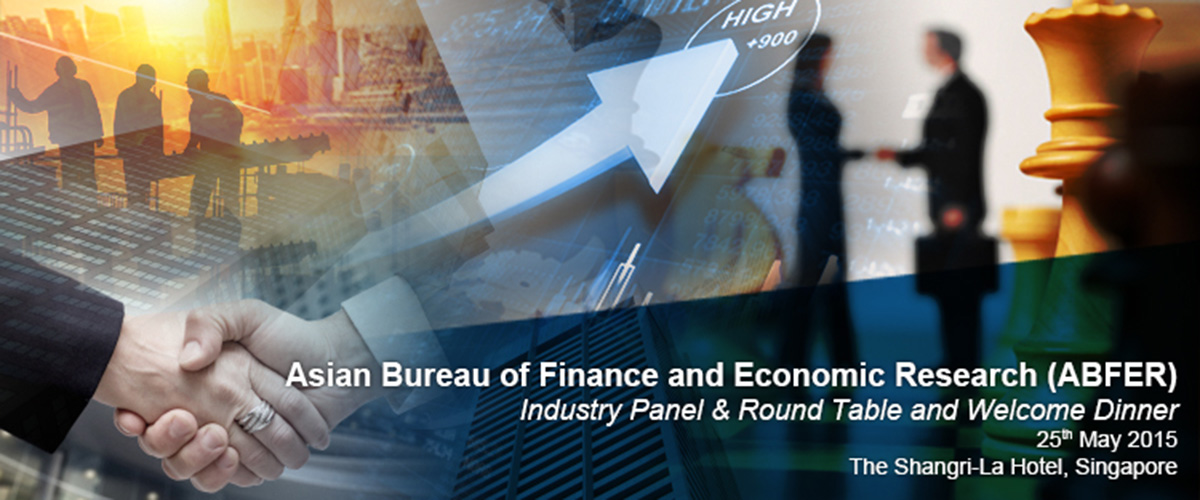Industry Panel & Round Table
HUMAN CAPITAL DEVELOPMENT IN THE WORKPLACE AND DURING THE WORKING YEARS
Over the last 30 years, there has been a revolution in the workplace. Firms have put in place high performance work practices. We see evidence of this in all sectors. In manufacturing, for example, workers at all levels are engaging in higher levels of problem solving. To achieve these high performance work practices, firms are hiring more carefully, encouraging more teamwork, sharing more information, and implementing more incentive pay.
But to complement these changes, and enable workers to problem solve, workers must be better trained. Thus, firms have been increasing the amount of training they provide to workers. This upward trend in training is also evident in retail trade and in high technology industries. In retail, large firms run corporate "universities" to train employees. In high-tech companies, firms devote considerable resources to hiring the right people: they use referral networks and passive recruiting to find the perfect person for each job. These individuals must then be trained extensively – both in the technology of the firm, and in the knowledge of the firm's products and markets.
Firms and workers are making investments in two types of human capital: in general human capital that is transferable to other firms; and in firm-specific human capital that is only useful with the current firm. In addition to firm investments, we see evidence that workers are investing in developing their own individual skills. The massive online course system has attracted the attention of workers who want new skills that they can use as they move from one employer to the next. Because of these investments (from the firm and by the individual), workers have careers in which wages rise with age.
In the software industry, we see wages rising both as workers hop from one job to the next, and as a worker increases his tenure and learning on the job. We find that the majority of wage increases for workers over their careers come from investing in skills with their current employer, not from hoping between employers. We can conclude that in today's marketplace, firms that invest more in human capital are achieving a strategic competitive advantage.
Event Details
2015
Ernerst C. Arbuckle Professor of Economics, Stanford University
"Human Capital Development in the Workplace and During the Working Years"
James Madison Professor of Political Economy, Princeton University
"Lessons from Serving as the President's Chief Economist"
-
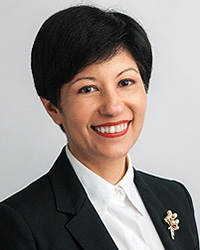
Ms Indranee Thurai Rajah
Senior Minister of State for Law and Education
Indranee Thurai Rajah She was educated at Raffles Institution in Singapore, and read law at the National University of Singapore. She graduated with an LLB (Second Upper Honours) in 1986, and was admitted to the Singapore Bar in 1987. Ms. Indranee joined the Singapore office of Freshfields, in 1987 as a legal associate. A year later, she joined the Litigation department of Drew & Napier. She was made a junior partner of the firm in 1992, and admitted as a full equity partner in 1994. With the corporatisation of the firm in 2000, she became a director of the Dispute Resolution Department of Drew & Napier LLC.
Ms. Indranee was appointed Senior Counsel by the Chief Justice of Singapore in January 2003. Her practice as a dispute resolution lawyer included cross-border disputes, corporate and commercial disputes and international arbitration. She was the Deputy Head of Drew & Napier's Dispute Resolution Department, until October 2012, when she left to join the government.
Ms. Indranee has been the Member of Parliament for the Tanjong Pagar Group Representation Constituency (GRC) since 2001. She chaired the Government Parliamentary Committees (GPC) for Law & Home Affairs (2004 to 2006), as well as Defence and Foreign Affairs (2006 to mid-2009). She was a Deputy Speaker of Parliament from 2006 to 2011.
At the Ministry of Law, Ms. Indranee currently helms committees on the review for the law on homicide, and the promotion of pro bono legal work. She co-chaired the Committees on Family Justice and the Singapore International Commercial Court with then-Judge of Appeal V. K. Rajah, the reports of which have been accepted by the government and are now in implementation. She continues to co-chair the on-going review of Family Justice Committee with Justice of Appeal Mr. Andrew Phang.
On the education front, Ms. Indranee chaired the Committee for Applied Studies in Polytechnics and ITE, which has set a new direction for dovetailing education and the demands of the future workplace. She also chairs the UniSIM Law School Steering Committee which will make recommendations to guide the development of Singapore’s third law school, to be located in the SIM University. -
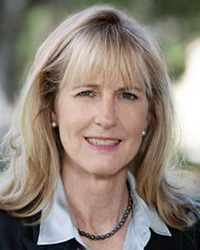
Professor Kathryn Shaw
Stanford University Ernest C. Arbuckle Professor of Economics
Kathryn Shaw is the Ernest C. Arbuckle Professor of Economics at the Graduate School of Business, Stanford University. Previously, Shaw was the Ford Distinguished Research Chair and Professor of Economics at the business school at Carnegie Mellon University. She completed her PhD in economics at Harvard University in 1981. Professor Shaw served as a Senate-confirmed Member of President Clinton’s Council of Economic Advisers, 1999-2001, and is an editor of the Journal of Labor Economics.
In work that has been published in the American Economic Review, and Management Science, she and her colleagues evaluate the effectiveness of complementary teamwork practices in the steel industry. Recently, she has turned to studying the performance gains from new information technologies and the changes in management strategy towards product customization that enhance returns to investment. In related work on incentives in franchising, she shows how the optimal use of franchise contracts can increase brand value for franchise companies. Her research has been extensively funded by the National Science Foundation, the Alfred P. Sloan Foundation, the Russell Sage and Rockefeller Foundations, and the Department of Labor.
In 2001, Shaw received the Columbia University award for the best paper on international business, and in 1998, she was honored as the recipient of the Minnesota Award for Employment Research for the best paper in 1997-98 on the topic of employment issues. She held a Stanford Graduate School of Business Trust Faculty Fellow in 2005-2006. She has been the recipient of the Xerox Research Chair, has served on a Research Panel of the NSF, and is an Editor of the Review of Economics and Statistics. At Carnegie Mellon University, Shaw received the Award for Sustained Teaching Excellence, the Economics Department Teaching Award, was Chair of the Faculty Senate, and was Head of the Department of Industrial Management. -
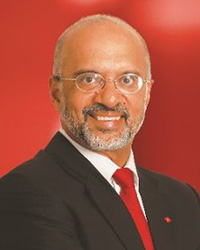
Mr Piyush Gupta
DBS Bank Chief Executive Officer and Director of DBS Group
Piyush Gupta is Chief Executive Officer and Director of DBS Group, as well as Director of DBS Bank (Hong Kong) Limited and The Islamic Bank of Asia Limited. DBS is a leading financial services group in Asia, with assets of approximately USD 300 billion, and with over 250 branches across 17 markets. Headquartered and listed in Singapore, DBS is a market leader in Singapore with over four million customers and also has a growing presence in Greater China, Southeast Asia and South Asia. DBS was named “Bank of the Year, Asia” in 2012 by The Banker, “Best Bank, Asia-Pacific” in 2014 by Global Finance, and "Safest Bank in Asia" from 2009 to 2014 also by Global Finance.
Prior to joining DBS, Piyush was Citigroup’s Chief Executive Officer for South East Asia, Australia and New Zealand. Piyush began his career with Citibank in India in 1982 and over the years, held various senior management roles across Citi's corporate and consumer banking businesses, including Head of Strategic Planning for Emerging Markets and Regional Director for Global Transaction Services for Asia Pacific. He has also served as Citi's Country Officer for Indonesia, Malaysia and Singapore respectively.
Piyush’s external appointments include serving as the Deputy Chairman of SPRING Singapore, as a member of the Group of Experts to the ASEAN Capital Markets Forum, and on the boards of the Institute of International Finance, Washington, The Institute of Banking and Finance, Dr. Goh Keng Swee Scholarship Fund, and the MasterCard Asia/Pacific, Middle East and Africa Regional Advisory Board. He is an advisory board member of Sim Kee Boon Institute for Financial Economics, and a council member of The Association of Banks in Singapore. Piyush is also a Managing Council member of Indian Business-leaders’ Roundtable (under SINDA).
Piyush has a Bachelor of Arts (Honours) Degree in Economics from St. Stephen's College, Delhi University, India and an MBA from IIM, Ahmedabad. -
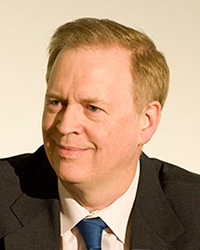
Professor Steven Davis (Round Table Chair)
The University of Chicago William H. Abbott Professor of International Business and Economics
Steven J. Davis is William H. Abbott Professor of International Business and Economics at the University of Chicago Booth School of Business. He is a research associate with the National Bureau of Economic Research, senior academic fellow at the Asian Bureau of Finance and Economics Research, economic adviser to the U.S. Congressional Budget Office, member of the U.S. Bureau of Labor Statistics Technical Advisory Committee, a visiting scholar at the Federal Reserve Banks of Atlanta and Chicago, and senior research adviser with Dice Holdings, Inc. His research interests include national economic performance, job loss and unemployment, hiring and wage behavior, and public policy.
Davis previously edited the American Economic Journal: Macroeconomics, the leading scholarly journal in the field of macroeconomics. Currently, he is a senior adviser to the Brookings Papers on Economic Activity and a member of the advisory board of the Journal of Labour Market Research. Davis has held positions at the Hoover Institution at Stanford University, the Massachusetts Institute of Technology, the National University of Singapore, and Charles River Associates.
Davis earned a bachelor's degree from Portland State University in 1980 and MA and PhD degrees in 1981 and 1986 from Brown University, all in economics. He is married to Akiko Davis and has four children.
- 1
Keynote Speaker
Lessons from Serving as the President's Chief Economist
Alan Krueger served as chairman of President Barack Obama's Council of Economic Advisers from 2011 to 2013, and was a member of the President's cabinet. He also served as Assistant Secretary for Economic Policy and Chief Economist of the U.S. Treasury in 2009 and 2010. This lecture will summarize ten practical lessons that Professor Krueger drew from his public service during the financial crisis and current economic recovery. He will also discuss some of the substantive economic issues that he was involved with and the role that economics research played in policy making.
-
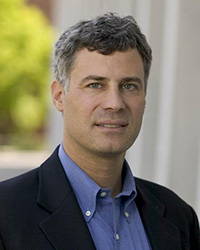
Professor Alan B. Krueger
Princeton University Bendheim Professor of Economics and Public Affairs
Alan Krueger has published widely on the economics of education, terrorism, unemployment, labor demand, income distribution, social insurance, labor market regulation and environmental economics. Since 1987 he has held a joint appointment in the Economics Department and Woodrow Wilson School at Princeton University. He is the founding Director of the Princeton University Survey Research Center.
Alan Krueger served as chairman of President Barack Obama’s Council of Economic Advisers from 2011 to 2013, and was a member of the President’s cabinet. He also served as Assistant Secretary for Economic Policy and Chief Economist of the U.S. Treasury in 2009 and 2010. This lecture will summarize ten practical lessons that Professor Krueger drew from his public service during the financial crisis and current economic recovery. He will also discuss some of the substantive economic issues that he was involved with and the role that economics research played in policy making.
He is the author of “What Makes A Terrorist: Economics and the Roots of Terrorism and Education Matters: A Selection of Essays on Education”, co-author of “Myth and Measurement: The New Economics of the Minimum Wage”, and co-author of “Inequality in America: What Role for Human Capital Policies?” He has been a member of the Board of Directors of the Russell Sage Foundation, MacArthur Foundation, and the American Institutes for Research, as well as a member of the editorial board of Science (2001-09), editor of the Journal of Economic Perspectives (1996-2002) and co-editor of the Journal of the European Economic Association (2003-05).
He has been a member of the Executive Committee of the American Economic Association (2005-07) and International Economic Association, and Chief Economist for the National Council on Economic Education (2003-09).
Professor Krueger was named a Sloan Fellow in Economics in 1992 and an NBER Olin Fellow in 1989-90. He was elected a Fellow of the Econometric Society in 1996, and a fellow of the Society of Labor Economists in 2005. He was awarded the Kershaw Prize by the Association for Public Policy and Management in 1997 (for distinguished contributions to public policy analysis by someone under the age of 40) and the Mahalanobis Memorial Medal by the Indian Econometric Society in 2001. In 2002 Professor Krueger was elected a fellow of the American Academy of Arts & Sciences, and in 2003 he was elected a fellow of the American Academy of Political and Social Science. He was awarded the IZA Prize in Labor Economics with David Card in 2006. From 2000 to 2006 he was a regular contributor to the "Economic Scene" column in the New York Times. He received a B.S. degree (with honors) from Cornell University's School of Industrial & Labor Relations in 1983, an A.M. in Economics from Harvard University in 1985, and a Ph.D. in Economics from Harvard University in 1987.
- 1

